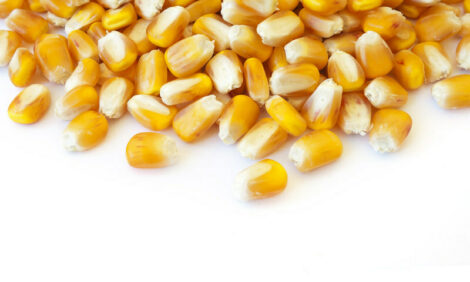



Key to Low Carbon Emission Pig Meat Production
A healthy diet and reduced consumption would reduce carbon emissions, writes ThePigSite senior editor, Chris Harris.
This was one of the provocative messages from consultant on sustainable development, Anthony Kleanthous to the British pig industry in a report commissioned by the British Pig Executive, entitled Pigs and the Environment.
Mr Kleanthous, who is founder of Here Tomorrow Ltd and a policy advisor to the World Wildlife Fund (WWF), said that like all economic activity, pork production and consumption causes environmental impacts. These are primarily climate change, air pollution, water pollution and loss of biodiversity.
He said that the impacts tend to be lower for pork products than for beef and lamb, but higher than for poultry and almost all non-meat sources of protein and fat.
He called on BPEX to continue to expand its efforts to enhance the environmental sustainability of the pork system by: focusing less on maximising production as an end in itself, and more on assuring that pork production and consumption is met sustainably from domestic production; and developing, with Defra, a Pork Roadmap, similar to those for dairy and beef.
He said that research should be expanded on environmental impacts other than greenhouse gas emissions, to include water resources, biodiversity, acidification, eutrophication, abiotic resource use and waste.

Source - BPEX/Anthony Kleanthous
He added that BPEX should develop expertise and advice to help farmers measure and reduce their environmental impact, processors and retailers to improve eco-efficiency, consumers to choose, store, cook and dispose of pork products and packaging more sustainably, and regulators to deliver the right framework.
Mr Kleanthous said there was a need for a broader engagement with consumers, retailers and policy-makers as trade-offs between needs, values and impacts have to be guided almost as much by human values as by ecological limits.
"The carbon footprint of food is high. It is up there with transport," he said.
"I am not going to say we have to give up eating meat, but I think we have to eat less meat.
"If we consume less, we pollute less and there are important ways in which we can reduce meat in the diet."
He said that BPEX and the pig industry should focus on sustainability and producers should be seen to be taking action to reduce their climate change effects.
"Globally, we are over consuming our resources," Mr Kleanthous said.
"If you could get everyone in the country to eat a healthy diet, it would reduce emissions by 20 per cent and we would meet the 2020 carbon emissions reduction target.
"The industry needs to work with its sister organisations around the world."
He called on the industry to rethink some of its practices such as the amount of soy it is using in animal feed and it should look for alternatives such as lupins, beans, rapeseed and peas.
He said the industry should join, or encourage members to join, the Round Table on Responsible Soy (RTRS) and make a public commitment to its principles of sustainable soy production. He said they should make feed companies and the supply chain aware of how and where to source RTRS soya and conduct – or help producers and retailers to conduct – a detailed audit of soy types used in supply chains, with specific reference to deforestation and other key environmental issues.
He added that to become more sustainable, the industry needs to cut waste and one way could be to start feeding co-products of the human food chain to pigs, provided they were assured to be safe.
He also called for backing for the approval at EU level of the use of meat and bone meal, provided that this is proved to be safe and the support of advancements in the use of genetics to enhance feed conversion rates and longevity, and to reduce morbidity.
He said the industry should support the government and local authorities in their efforts to develop and roll out more cost-effective means of developing biogas from anaerobic digestion.
It is necessary to promote these technologies to farmers and industry where appropriate and support work to reduce waste from farming, processing and consumer use of pork products and packaging.
He said the industry needs to consider both technological and educational solutions.
"It needs to support the development of lower-impact packaging, such as new packaging materials and information for consumers about the disposal of packaging," he said.
It is also necessary to encourage local authority composting of unavoidable food waste.
He called on BPEX to back efforts to encourage feed importers, farmers, processors, retailers and hauliers to increase the proportion and efficiency of "second-generation" (or higher-generation) biofuels in their operations and also support the work of the Roundtable on Sustainable Biofuels (RSB) and the adoption and testing of RSB draft standards.
He added that it was necessary to help retailers and consumers to choose and use pork products sustainably and help guide the formulation of the UK Government's new Green Claims Code.
Mr Kleanthous said that BPEX and the British pig industry should continue and expand its efforts to enhance the environmental sustainability of the pork system by focusing less on maximising production as an end in itself and more on assuring that the UK's demand for pork is met sustainably from domestic production.
Further Reading
| - | You can view the full report by clicking here. |
December 2009








